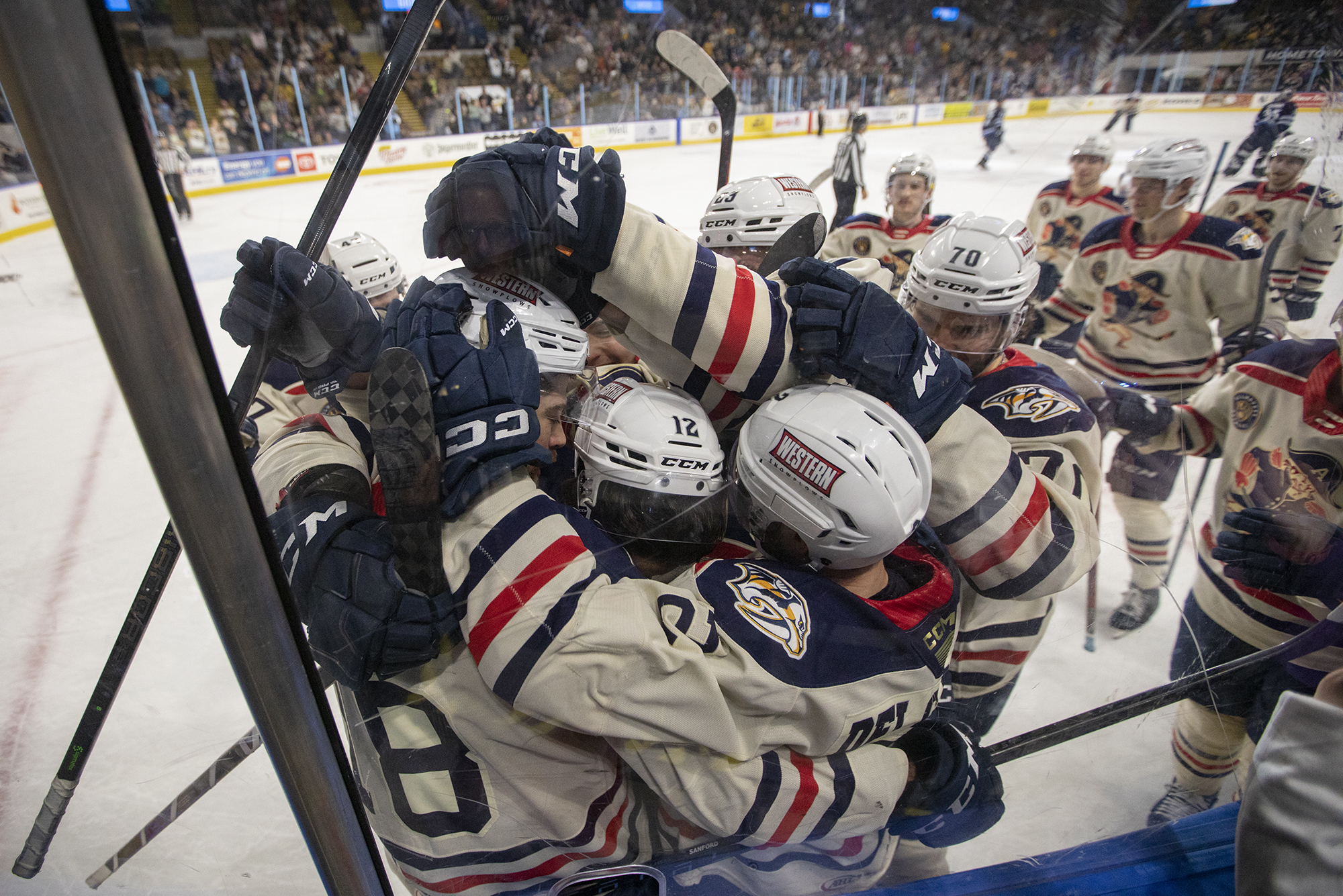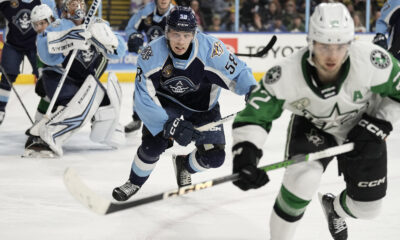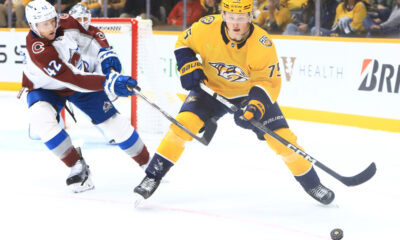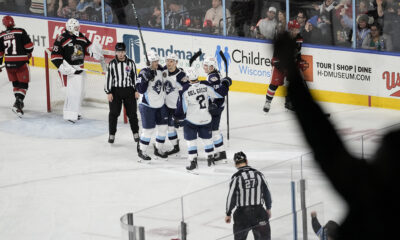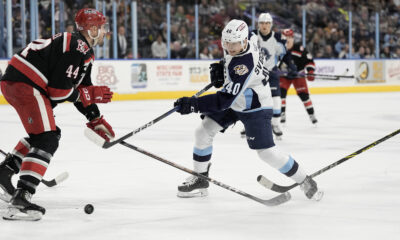Tomorrow night, after a lengthy break, the Milwaukee Admirals will begin their 2023 Calder Cup playoffs campaign. Milwaukee, which finished second in the AHL’s Central Division with 89 points, will take on the third-place Manitoba Moose, which finished the regular season with 84 points. That showdown is a rematch of their 2022 Calder Cup playoffs bout, which the Admirals won in five games.
With a rejuvenated roster thanks to reinforcements from Nashville, there are high expectations for the Admirals; the Preds’ farm club hasn’t won a title since 2003-04 and has won just one playoff round in the past decade.
In the regular season, Milwaukee went 4-3-1 against the Moose, outscoring them 26 goals to 24. Below, I analyze how Milwaukee stacks up against Manitoba in each aspect of the game and provide some outstanding questions that will be prevalent in this series.
Forwards
Heading into the postseason, the Milwaukee Admirals have 18 forwards on their roster, not including Jachym Kondelik and Markus Nurmi who are injured. That means Karl Taylor will have some major lineup decisions to make, but it also means he has plenty of depth should he need to mix things up.
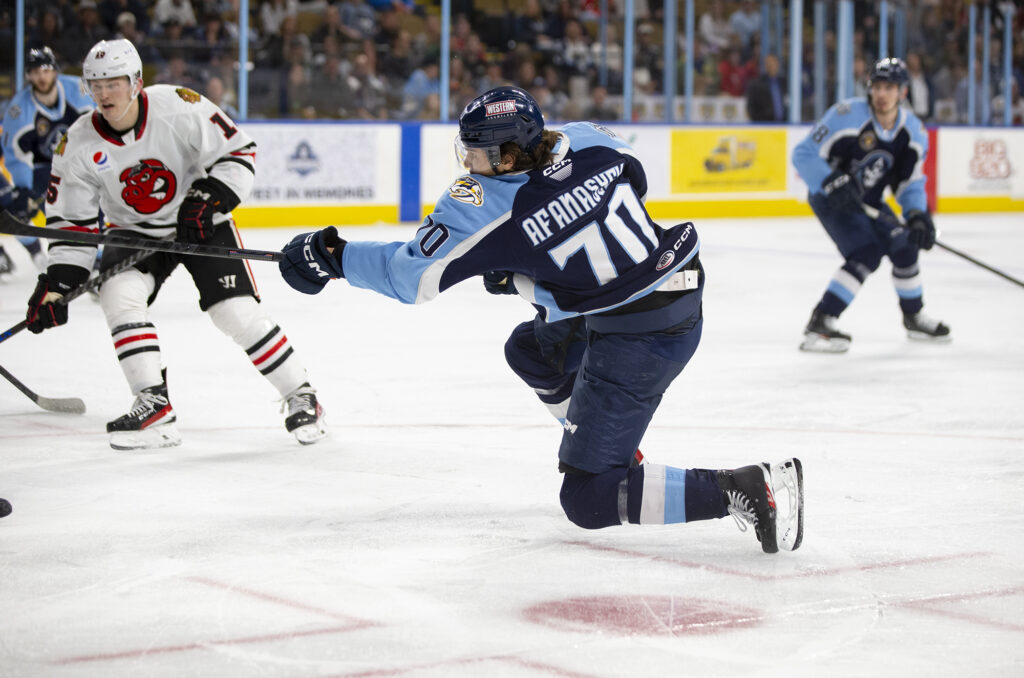
Take a look at the likely locks for this forward lineup, and it’s a scary bunch. In their top six, Milwaukee will likely roll out Luke Evangelista, Phil Tomasino, Mark Jankowski, Kiefer Sherwood, John Leonard, and Cole Schneider. That’s four players who spent much of the season in the NHL and then the team’s top two scorers this year (Schneider -51, Leonard – 44).
The Admirals scored the sixth-most goals in the AHL this season (238), averaging over 3.30 goals per game. Those top two lines will be leaned on to catalyze this team on the scoresheet, but with an expanded lineup, Milwaukee’s bottom six can provide a nearly as impressive scoring punch. Egor Afanasyev, Anthony Angello, and Michael McCarron seem like they have their spot in the lineup sewed up, so does Karl Taylor then go with more size—Isaac Ratcliffe, Zach Sanford, Austin Rueschhoff—or more skill—Jimmy Huntington, Simon Knak, Joakim Kemell?
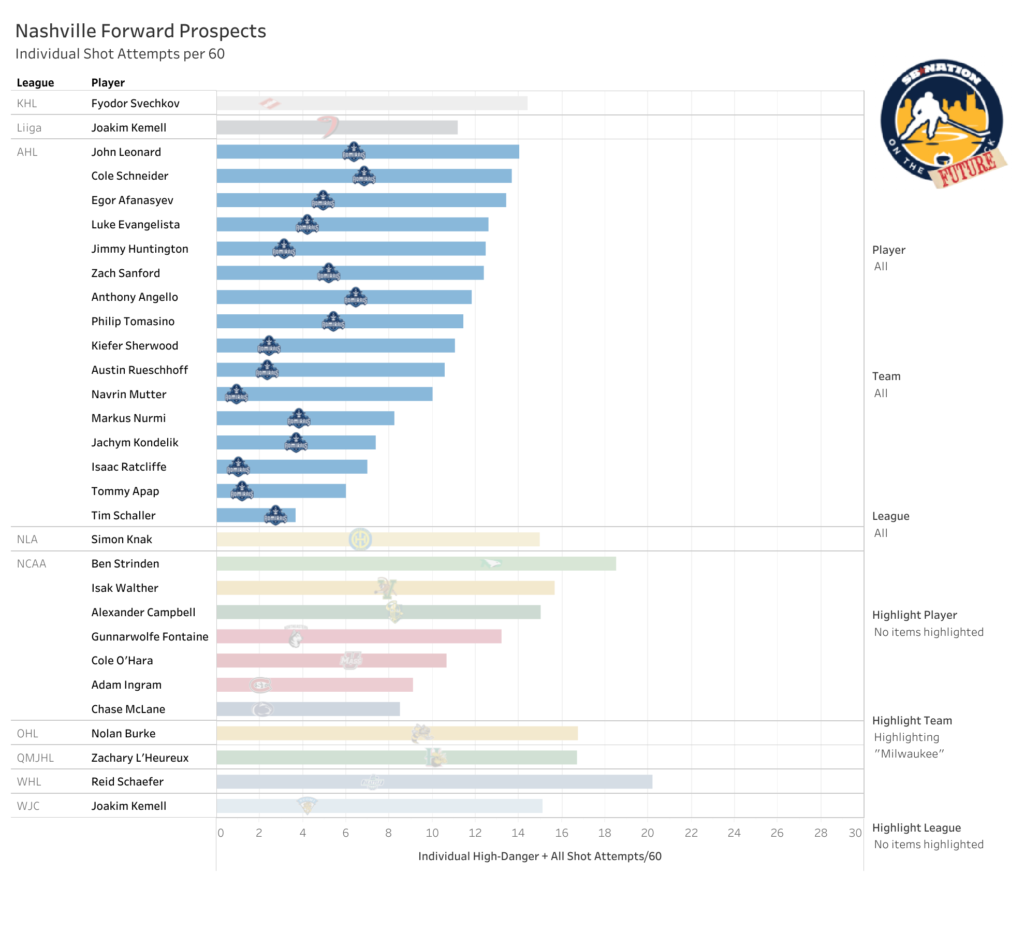
Regardless of Taylor’s lineup decisions, keep an eye on John Leonard, who led the team with 14.0 shot attempts per 60 minutes (at even strength), and Cole Schneider, who led the way with 6.9 high-danger shot attempts per 60 minutes this year.
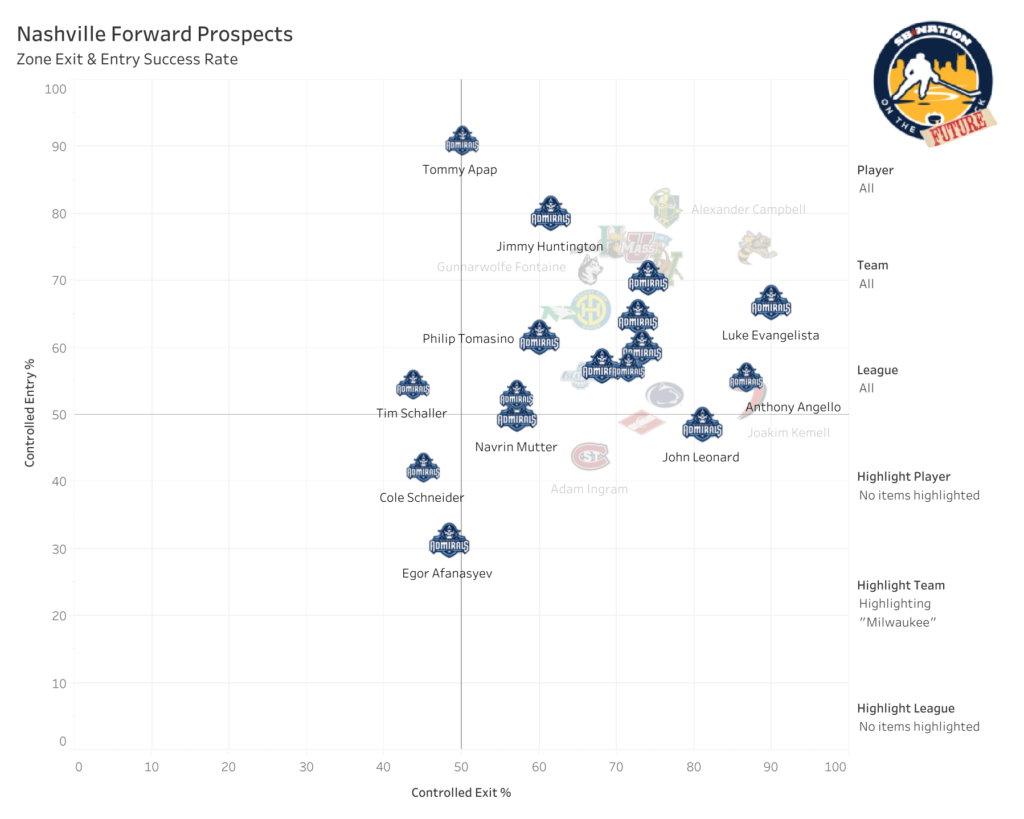
In transition, Milwaukee was very solid at maintaining possession when skating the puck into the offensive zone this year, and only three forwards dumped the puck in more than they carried it: Cole Schneider, Austin Rueschhoff, and Tommy Apap. Look to Evangelista (76.9% success rate), Huntington (93.3%), Tomasino (93.3%), and Sherwood (77.8%) to lead the way in gaining the offensive zone and establishing a cycle in this series.
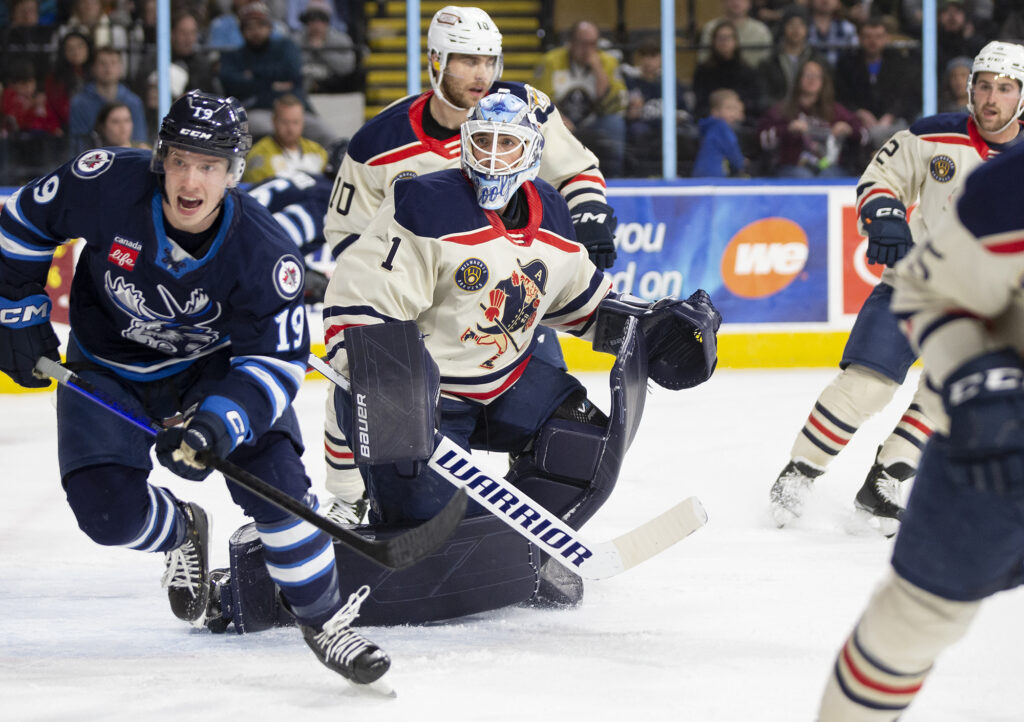
For the Moose, a lot of things can change if the Vegas Golden Knights take down the Winnipeg Jets, who are facing elimination tonight, in the Stanley Cup playoffs.
Their forward group is really led by a trio of lethal scorers: Dominic Toninato, Jansen Harkins, and Alex Limoges. Those three combined for 139 points in the regular season, and they were instrumental in catalyzing the Moose’s offense, recording a point on 62.9%, 81.6%, and 70.5%, respectively, of the even-strength goals they were on the ice for.
Behind that initial wave, Manitoba’s top six is filled out by a mix of Jeff Malott, Daniel Torgersson, Cole Maier, and Wyatt Bongiovanni. Kristian Reichel, who punched in nine goals and 24 points this year, is out for the season with an upper-body injury.
The depth of this group doesn’t stand out on paper, but the Jets did just reassign third-round pick Danny Zhilkin to the Moose, who scored 126 points in 186 OHL games. Milwaukee has the edge at forward in this series, but Manitoba did outshoot them 269 to 241 this season, so their bunch knows how to pressure the Admirals.
Defenders
While Karl Taylor will have significant lineup decisions to make at forward, his blue line is mostly set. Milwaukee will go with a top six of Marc Del Gaizo, Kevin Gravel, Spencer Stastney, Roland McKeown, Jordan Gross, and Adam Wilsby; Keaton Thompson and Xavier Bouchard will be extras.
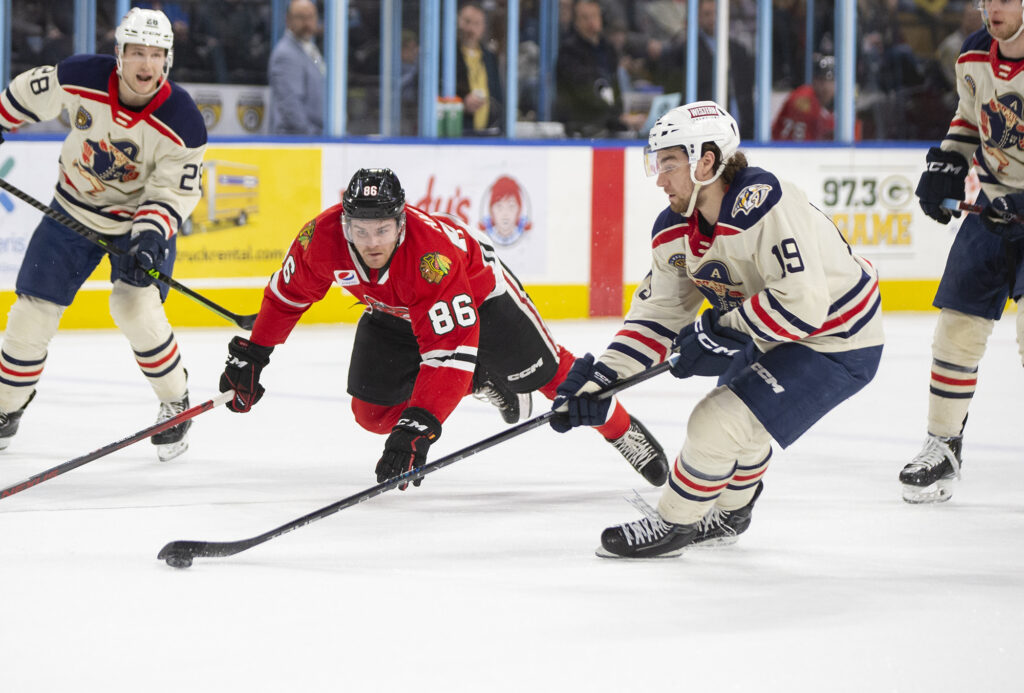
That blueline—despite allowing 30.9 shots per game in the regular season—allowed the eighth-fewest goals league-wide (211); Manitoba allowed 226. Maybe more importantly, those six skaters pitched in 135 points this year compared to 172 points from the Moose’s top six defenders.
In terms of shutting down offensive chances, Stastney and Wilsby were the Admirals’ best pair at preventing zone entries in the regular season; Wilsby allowed just a 48.0% success rate to opposing forwards in four games I tracked.
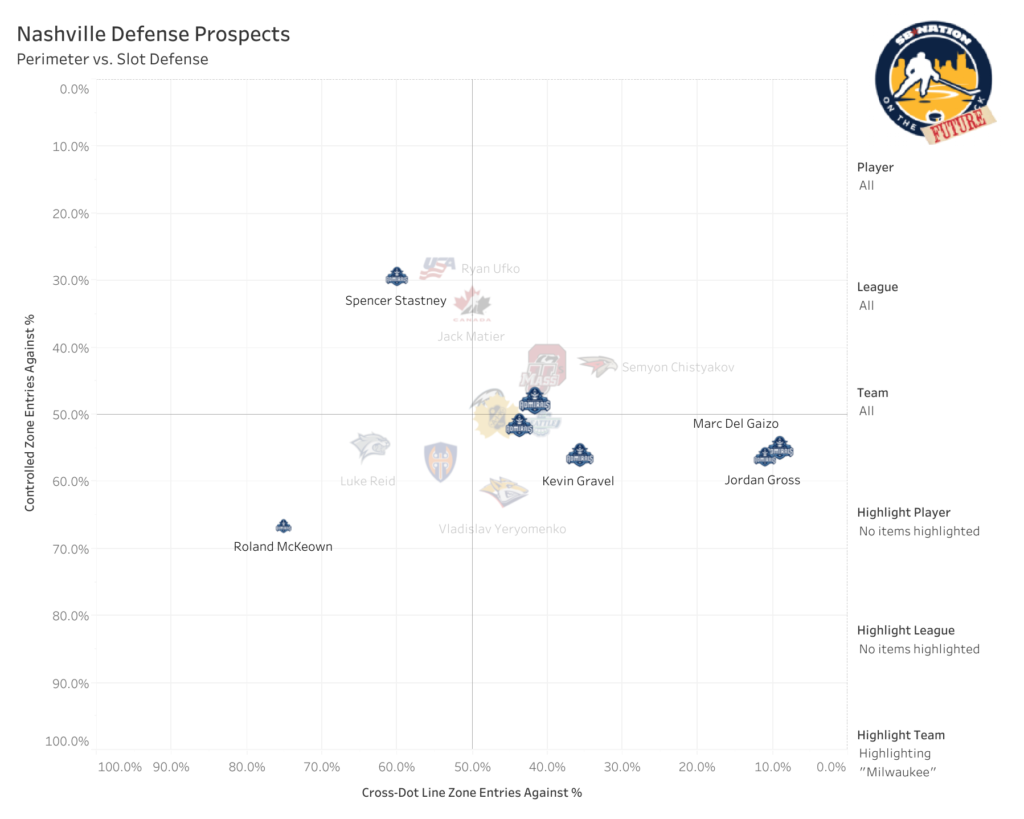
There will be two keys to success for Milwaukee’s blueline in this series. First, can their duos coordinate well enough to ensure they have enough puck support when retrieving dumped-in pucks? On shifts where the Admirals got hemmed in their offensive zone this season, an outstanding forecheck usually cut off that puck-support lane between defenders, often forcing that first defender to carelessly throw the puck up the boards. Second, how well can Milwaukee’s blue line reverse the play after mitigating Manitoba’s zone entries? All six defenders were solid this year at executing defensive zone exits, but Stastney, Wilsby, and Gross stood out in skating the puck out on their own. Flexing those puck-possession muscles will be critical against a Manitoba defense that plays aggressive offense.
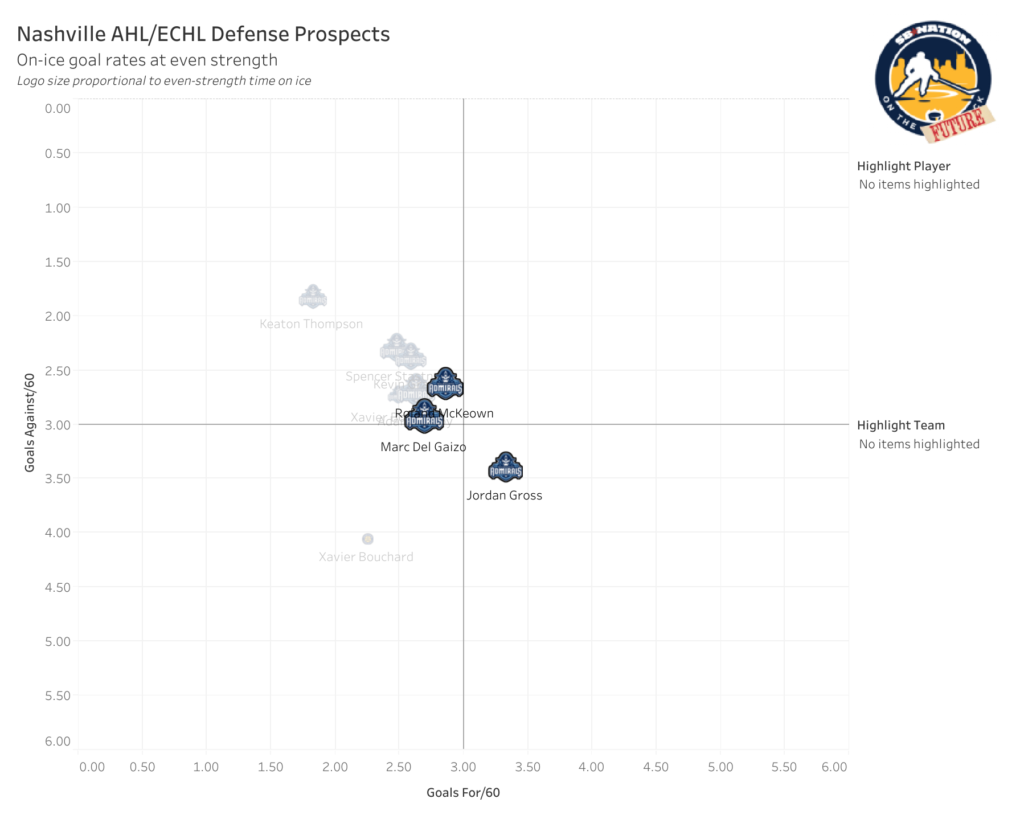
At the other end of the ice, watch out for Del Gaizo, Gross, and McKeown to lead the way in shot attempts and primary shot attempt assists.
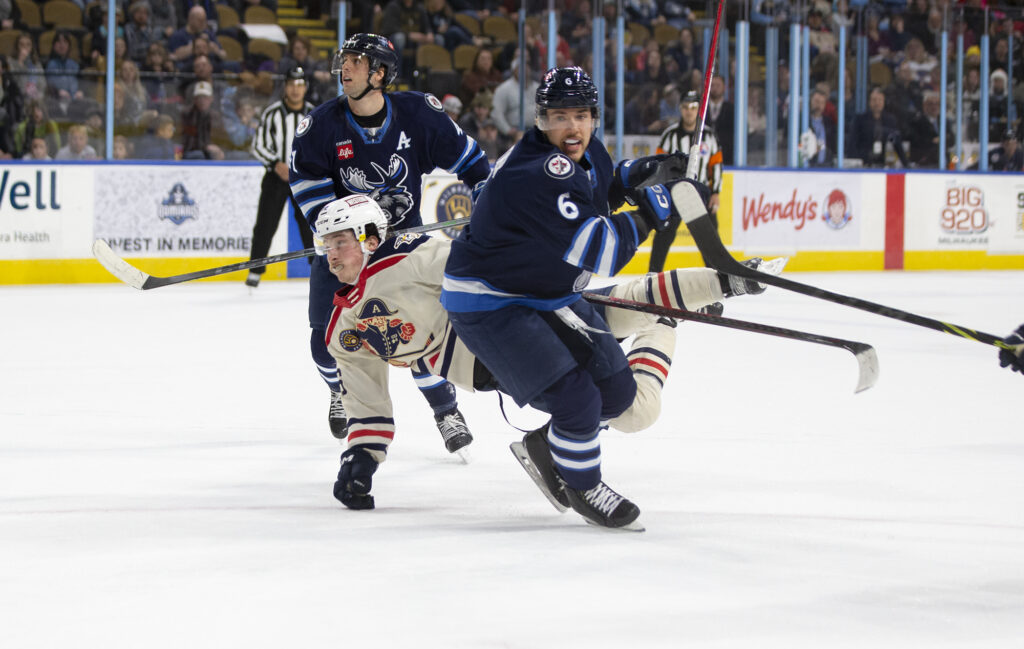
Any discussion about the Manitoba Moose’s defense begins with Leon Gawanke. The Admiral killer posted an impressive 20 goals and 45 points in 68 games this season, and I’ll be shocked if his name isn’t all over the scoresheet in this series. Behind him, Declan Chisholm—who recently returned from injury—and Ville Heinola round out a very good top three; Dean Stewart, Jimmy Oligny, Tyrel Bauer, and Simon Lundmark provide depth down the defensive lineup.
I expect the Moose blueline to attempt to set the tone early with aggressive pressures in the neutral zone and relatively frequent pinches into scoring positions at the other end. Milwaukee will need to be at their best in transition, and the connection between the Admirals’ defenders and their wingers along the defensive-zone boards will make a huge difference. Otherwise, these two units are pretty evenly matched.
Goalies
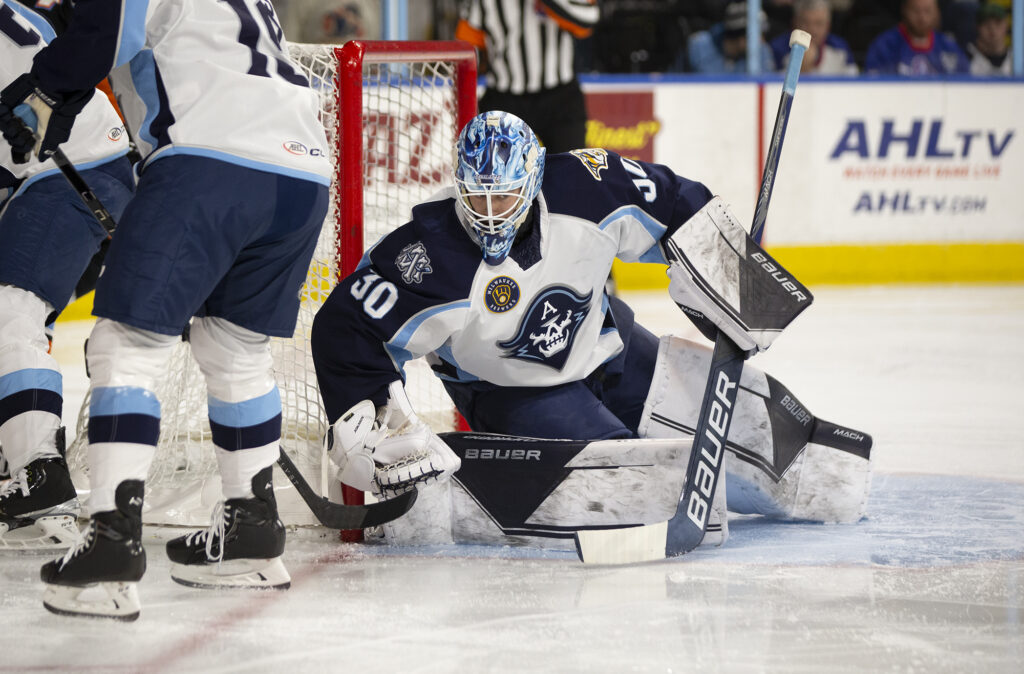
Unlike last season, when Connor Ingram was recalled to Nashville, Milwaukee has a dual threat between the pipes this year. Yaroslav Askarov, who finished the regular season with a 0.911 save percentage, will be the starter, but if he falters, Devin Cooley (0.909 save percentage) has proven himself to be a sold backup. Askarov had some really elite stretches of play this season, including a period in February with six performances above a 0.920 save percentage; he finished the year stopping 10.904 goals above average.
On the other hand, Manitoba’s goaltending situation couldn’t be worse right now. Both of their goalies—Arvid Holm and Oskari Salminen—are on recall to Winnipeg due to an injury to Dave Rittich. If the Jets aren’t eliminated tonight, the Moose’s game-one starter will be Evan Cormier, who appeared in just two AHL contests this season.
Even if Holm and Salminen return, Milwaukee has the edge in the crease, particularly if Askarov is at his best.
Special Teams
Special teams might be the area where these foes are most similar. The Admirals finished the regular season with a league-best 24.6% power-play success rate, but the Moose were just behind them at fifth with 22.7%. Milwaukee runs a fairly standard 1-3-1 power play with one quarterback at the point; one of the wings (think Isaac Ratcliffe or Mark Jankowski) acts as a more stagnant secondary quarterback while the far wing—usually a sniper like Kemell or Leonard—and the bumper slide up and down the zone. Cole Schneider and Michael McCarron will continue their roles parked in front of Manitoba’s goalie. The Moose on the other hand use a more traditional umbrella power-play set-up with two net-front forwards.
On the penalty kill, Milwaukee was the third-best team in the AHL with an 84.3% success rate; Manitoba finished in tenth place with an 82.2% kill rate. Both teams’ penalty kill strategies are pretty similar, although Milwaukee may want to count on facing more point shots, especially with Leon Gawanke bombing pucks from the point.
X-Factors
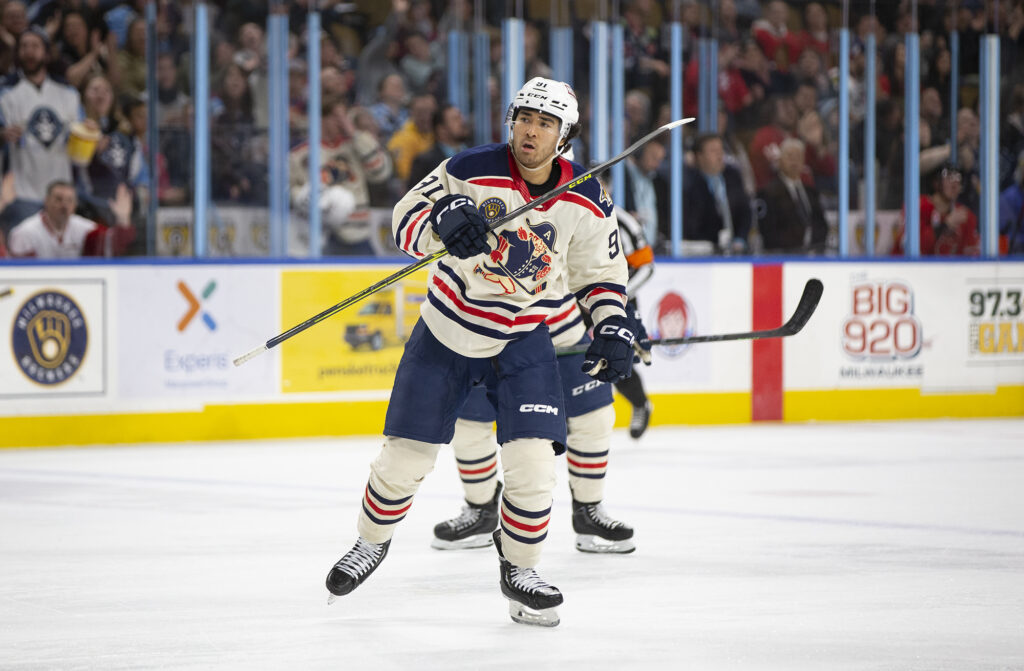
For Milwaukee, there are a lot of things that may contribute to a successful series—stellar goaltending, continued excellence on special teams, etc. But for me, the biggest X-factor is the top six forwards. There may well be some growing pains or an adjustment period for those returning from NHL duty, and this team has gelled well without them. That begs the question: can players like Kiefer Sherwood, Mark Jankowski, and Luke Evangelista jump back into the lineup and pick up where they left off or will disruptions trip them up? Overall, this roster is significantly better than Manitoba’s; if they have a chance to seize the series early, they can’t let go.
For Manitoba, the big difference-maker will be their blue line at both ends of the ice. With uncertainty between the pipes, they’ll have a tough task shutting down what can be a relentless forward group from Milwaukee. In the offensive zone, can the Moose defenders permeate the Admirals’ forwards and overwhelm them offensively? If Gawanke, Chisholm, and Heinola are firing on all cylinders, that could present problems for Milwaukee.
Series Schedule
As the higher seed, Milwaukee chose to play games one and two on the road. The series schedule is as follows:
- Friday, April 28: Milwaukee @ Manitoba — 7:00 p.m. CDT
- Sunday, April 30: Milwaukee @ Manitoba — 2:00 p.m. CDT
- Wednesday, May 3: Milwaukee vs. Manitoba — 7:00 p.m. CDT
- Friday, May 5: Milwaukee vs. Manitoba — 7:00 p.m. CDT
- Saturday, May 6: Milwaukee vs. Manitoba — 6:00 p.m. CDT
All statistics are courtesy of eliteprospects.com, theahl.com, ahltracker.com, or manually tracked.

